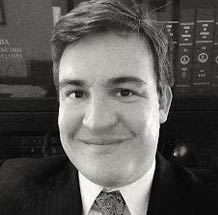Probation Violations in Virginia Are Serious
One of the consequences of being convicted of a crime at the local, state, or federal level may be probation. This sentence is often assigned to first-time offenders or individuals who are at low-risk of endangering the safety of others.
Those assigned probation must follow a specific set of guidelines; if they fail to do this, they have violated the terms of their agreement.
Many who violate the law concerning their probation are unaware of the severity of the consequences of their actions. “What are my options if I violate parole?” is often asked.
The answer depends on several factors, such as the nature of the original crime, the specific terms violated, and the classification of the offense. In any case, it is essential to consult with an experienced legal professional. For those facing serious charges or probation violations related to a felony, seeking guidance from a seasoned felony attorney in Richmond can make a significant difference in the outcome of your case.
Whether you’re dealing with the aftermath of a felony conviction or a probation violation tied to a prior offense, the right legal representation can help you understand your rights, explore your options, and protect your future.
Seven of the Most Commonly Asked Questions Regarding Probation Violations
1. What Is Probation?
Probation, of which there are two types, is a form of sentencing that is assigned instead of jail time or after release from prison. It is designed to help a convicted individual function as a responsible member of society.
In Virginia, the amount of time an individual can be sentenced to probation is determined by law and depends on the classification of their crime. Those convicted of misdemeanors can face up to one year of probation, while probation for felony convictions can last up to five years.
2. What Is the Difference Between Supervised and Unsupervised Probation?
Individuals convicted of crimes may be sentenced to supervised or unsupervised probation. Supervised probation involves the participation of a probation officer to whom the individual must report. Those convicted of more serious crimes will be assigned more frequent contact with their probation officer, while those with less serious crimes will be assigned low-level supervision, which often requires check-ins every month.
Individuals convicted of minor infractions may be assigned unsupervised probation where a judge determines the amount of time that the individual must follow specific prescribed protocols. These will vary from case to case.
3. What Are Common Conditions to Which Individuals on Probation Must Abide?
While conditions are assigned based on the specifics of each case, some of the most common include:
- Living in an approved location/residence
- Maintaining a job
- Subscribing to GPS monitoring
- Making restitution to those they have wronged
- Providing community service
- Participating in drug/alcohol programs
- Undergoing counseling
- Abstaining from drinking/drugs
- Refraining from operating or possessing a firearm.
Failure to abide by these conditions can result in the revocation of probation.
4. What Happens If I Am Arrested for a Second, Unrelated Crime While on Probation?
Being arrested may not violate probation; everyone is considered innocent until proven guilty. However, if you are convicted, you technically will have violated the terms of your probation, and it may be revoked.
5. What Is the Difference Between a Felony Crime and a Federal Crime?
Felony crimes are serious offenses that may result in a jail sentence in a state prison. These crimes range in severity from Class 1 to Class 6 and are often violent.
When one violates laws passed by the U.S. Congress (civil rights crimes, white collar crime, terrorism, etc.), they may be charged with and convicted of a federal crime. While punishments if found guilty can be serious, some violators are given probation. If you violate probation on a federal crime, you will want to seek the services of a criminal defense lawyer.
6. What Happens If I Violate My Probation?
The consequences for parole violations depend upon the severity of the crime for which you were convicted, your criminal history, and the seriousness of the violation. Minor issues may result in a warning, but more severe ones may result in harsh repercussions. In some cases, the probation time will be increased, so you will have to live under the restrictions set forth by the judge for an extended period. Other transgressions may result in the judge’s requiring additional actions, like participation in certain programs or more community service. In more serious situations, violators will be sent to prison for a specified time and then released to complete their probation. Finally, if your violation is of the most serious type, your probation can be fully revoked, and you may be sentenced to serve time in jail.
7. I Missed One Check-In With My Probation Officer. What Will Happen?
Missing a probation check-in is defined as a technical violation. If it is your first deviation, the judge may just issue a warning. That said, if you miss a second meeting, you can be sent to jail for up to 14 days. Subsequent violations result in more serious sentencing.
What Should I Do If I Am Accused of Violating My Probation?
Engage Experienced Counsel
Many who violate the terms of their probation don’t realize how serious their actions, or lack of actions, are. They believe they can appropriately handle the situation on their own. Virginia takes violations of probation seriously and, depending upon a host of issues, violations can result in severe consequences, including loss of freedom.
Have you violated your probation? If so, engaging the guidance and counsel of a probation violation attorney is a critical first step in protecting your future.
Be sure to review the qualifications of the professionals you consider. You want to work with a criminal defense attorney who has experience defending parole violations for the particular type of crime (federal versus state, or misdemeanor versus felony) that you committed.
Contact Cody Villalon As Soon As Possible
Cody Villalon is a seasoned and well-respected Virginia criminal defense attorney experienced in defending those accused of all types of probation violations. As a sole practitioner, he has more than a decade of experience and has an outstanding reputation for providing his clients with the personal service they deserve.
Years ago, Mr. Villalon founded his firm on his belief that providing quality defense services to those who need it most strengthens our country’s legal system. His devotion to defending those accused of crimes, including violating probation, is considerable and long-standing. Those in his community have the utmost confidence in the service he provides.
Contact Cody Villalon today at 804.316.0765 to schedule your free consultation. Time is valuable in situations like this; it is in your best interests to act immediately.






